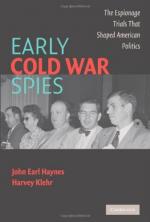|
This section contains 2,166 words (approx. 8 pages at 300 words per page) |

|
by Michael Scardaville
About the author: Michael Scardaville is a policy analyst who focuses on homeland security issues for the Heritage Foundation, a conservative public policy research organization.
The September 11, 2001, terrorist attacks made it abundantly clear that U.S. national security policy in the post–Cold War era had not paid enough attention to a vital area—the American homeland. . . .
[Since 1992] numerous nebulous issues have been deemed vital to national security. For example, in 2000, President Bill Clinton identified the AIDS epidemic in Africa as a threat to national security, and in 1995 and ’99 the United States found itself fighting in the Balkans to restore “humanity” to the Yugoslav civil war. Meanwhile, the American people were left vulnerable to the threat of terrorism, contrary...
|
This section contains 2,166 words (approx. 8 pages at 300 words per page) |

|




